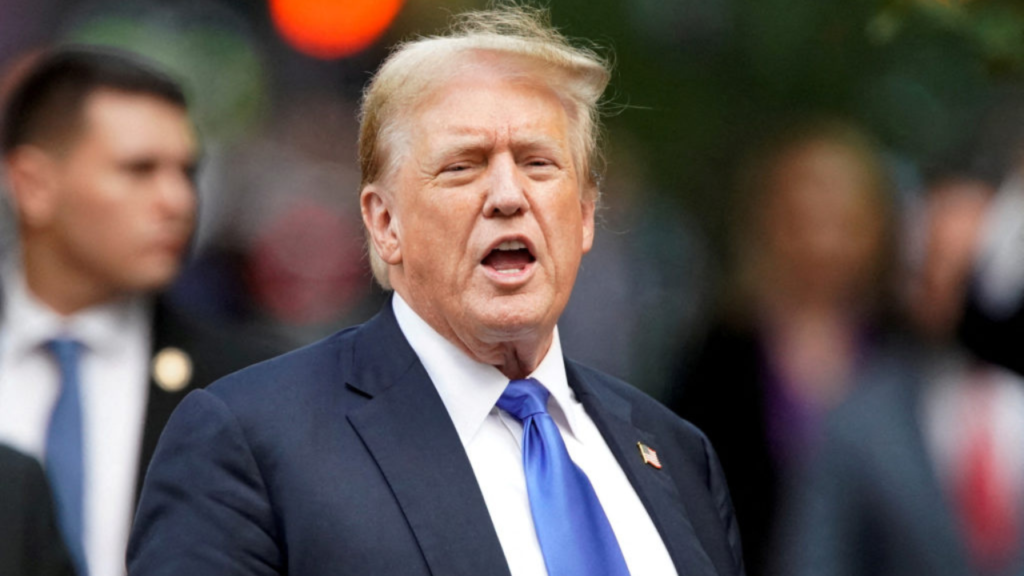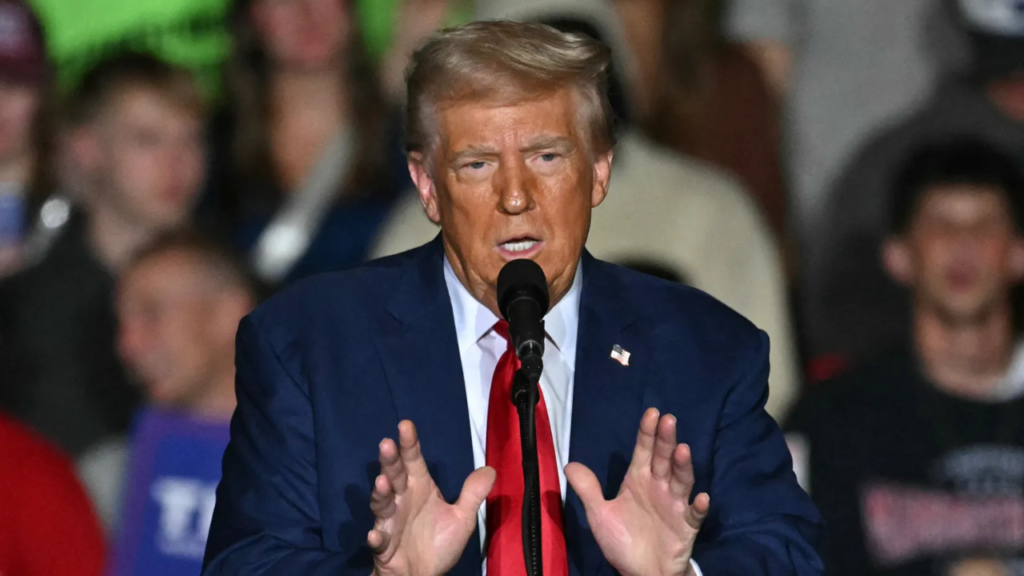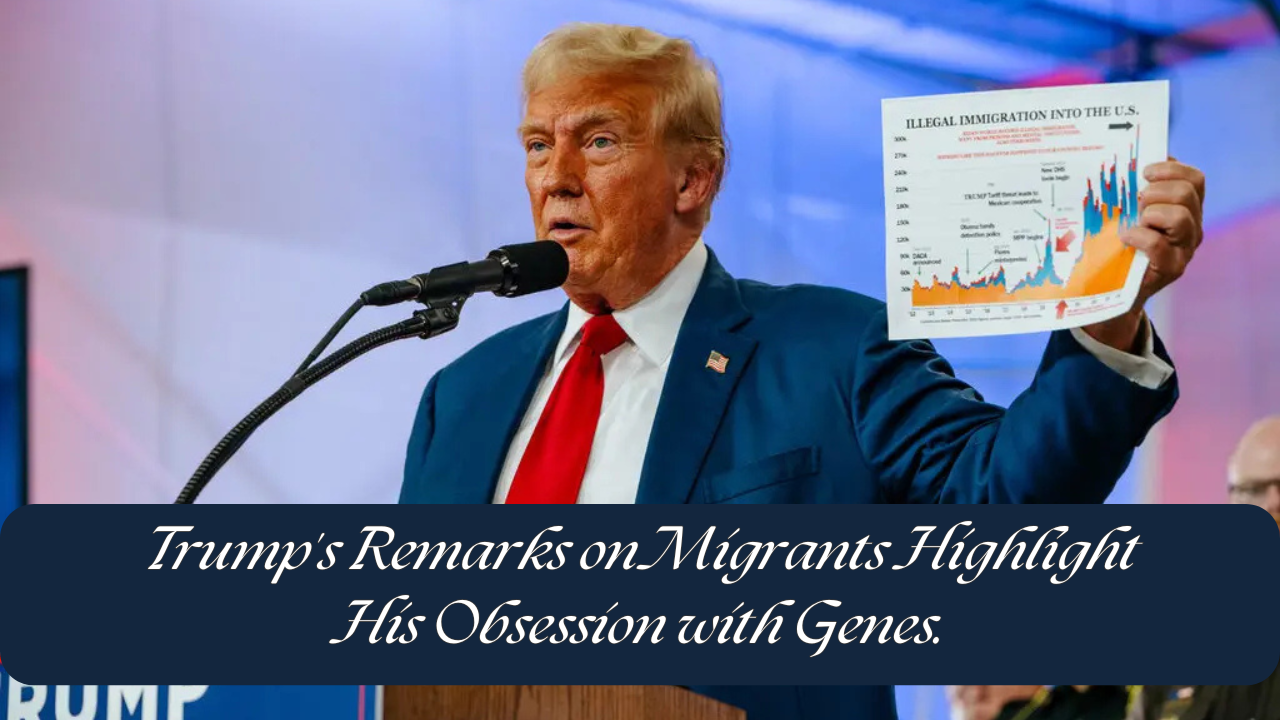Introduction
Nothing seems to make Donald Trump court controversy-and without fail, it is due mainly to his constant invocation of genetics. As he has said when pointing out that migrants introduce “bad genes” into America, he plays out a detestable historical narrative-a trajectory in which genetic determinism subsumes human value. It is reflected in charges that migrants “poison the blood” of the country-a phrase smelly of eugenic ideology.
Remarks by Trump are not some isolated statements but forms part of a larger pattern that represents his fixation on genes. His speeches often intimated that the ability to thrive and being of societal value go hand in hand with one’s genetic makeup, a belief that shaped not only his public statements but also immigration policies.

These comments expose a potent ideology that reflects the understanding of immigration issues through the perspective of racial and biological superiority and consequently affects policy decisions as well as the terms of national discourse on who is fit to belong in America.
The Ideological Roots of Trump’s Rhetoric
To start with, the study of the ideological roots of Trump’s rhetoric must begin by examining the history of eugenics and the full extent of its influence on contemporary politics.
Eugenics was an early 20th-century movement proclaiming a better human race through selective breeding-based on the concept of genetic superiority-there existed innate differences in certain traits, and thus some groups were inherently superior to others.
Here comes race science into the picture, a pseudoscientific discipline that was once used in support of eugenic ideas. In such thinking, it attempted to draw lines between human subjects in matters of physical and genetic properties.
The discipline always seemed to give an air of legitimacy to these discriminatory ideologies, allowing them to whisper in the ears of politicians and policymakers, who then reflect them in official political discussions and policy-making.
Within the right-wing zeitgeist, genetic superiority has been one of the major determinants of attitudes toward immigration. Belief in the notion that a race is inherently superior over another feeds into stories that brand immigrants as threatening national identity and purity.
Such narratives fit in with Trump’s rhetoric-often speaking about unwanted genetic elements entering the country from migrants.
- Indeed, the historical figures had the same beliefs as they used the concept race science to enforce the exclusionary policies.
- This is one of the ongoing ideas found in reference to preserving a “pure” national identity, part of the universal message from nationalist movements around the world.
Trump’s comments on migrants are not one-off speech but a myriad of discussions that have had their existence in the course of history, resonating with the principles established centuries back with eugenics dictating how society functioned and governments were run.
This connection of immigration to genetics leads Trump to look into the deeper fears and biases within the collective mind that, even in this day and age, drive public perception regarding aliens.
It mirrors a strand of conservative thought that emphasizes heritage and blood, rather than shared ideals. Such visions inform political strategy and also determine how societies can think about diversity and integration.
An understanding of these origins is necessary to explain why genetic rhetoric is so potent in many quarters of politics.
Stephen Miller’s Influence on Immigration Policy
Stephen Miller is an assistant who worked closely with Donald Trump on his work in immigration policy, and he has played a significant role in producing ideas that reflect the views of the president on genetics and immigration. He particularly dominated policies regarding the reduction of admissions of refugees and an increased vigor in combating illegal immigration.
Refugee Program Cuts
Under Miller’s leadership, the Trump administration drastically decreased the absolute number of refugees allowed into the United States. This is in keeping with this belief in the tenet of genetic determinism, finding synergy with Trump’s rhetoric to suggest a preference among some genetic backgrounds over others.
Illegal Immigration Enforcement
Further, more authoritative measures by the agencies like Department of Homeland Security (DHS) and Immigration and Customs Enforcement (ICE) went in line with Miller. Here, also, the actions were towards undocumented immigrants using highly aggressive measures, and the entire agenda here reflects priority given to genetic “purity” and over human rights and humanitarian consideration.

Miller’s strategies were not just about border control but also about reshaping the demographic makeup of America according to a narrow understanding of genetic suitability. His policies served as channels for Trump’s ideology, highlighting how deeply rooted these beliefs were within their administration.
These policies Miller actually institutionalized in the form of government action turned the genetic rhetoric of Trump into concrete government actions that had some staying power on U.S. immigration policy.
The Broader Conservative Agenda on Immigration
Trump’s comments on the genetic characteristics of immigrants are part of a much larger conservative plan that has centered on issues of border security and an increasing reduction in immigration. His words often make immigrants look like threats to national safety and identity, part of widespread right-wing thinking that often tends to fuel “hate immigrants” mentality.
This agenda can be viewed through strict immigration policies that will aim to reduce the number of asylum seekers and undocumented immigrants. Such policies are in line with a belief system that centers on genetic background as part of the American identity, thus strengthening the walls that obstruct diversity. Such actions often include:
- Strengthening border controls: It focuses on building walls and enlarging detention capacity, in the style of some new Texas Republican border bill proposals. Legislations targeting other than
- European immigrants: In this category, proposals fall that include “remigration,” which incites sending away persons who do not meet a particular ethnic or cultural profile.
- Strict asylum rules: Unduly stringent conditions to seek admission into only increase the hardships that asylum seekers at large, especially those who have fled from violence and persecution, encounter. The Biden administration has, within the recent past revamped asylum policy within its regime, thereby making the former even sterner.
Statements made by Trump demonstrate support for the same policies, more specifically under the policy of genetics, a scale used to measure the scale of importance in society. This is the same view that is shared with parts of this conservative audience, thus affecting policy decisions that preserve what the conservatives feel is the cultural and genetic purity of the country.
Public Reactions to Trump’s Genetic Rhetoric
The views of Trump regarding migrants, especially in terms of genetics, provoke mixed reactions from different quarters. Most politicians and activists expressed their opinions on his rhetoric concerning genetics in strong opposition and less in favor of his narratives.
Political Reactions
Supporters
Some conservative figures agree with the emphasis that Trump places on genetics when it comes to the matter of national identity and security points. It’s almost as if they believe this manner of speech is called for to defend American values and to highlight some potential threats from certain immigrant groups.
Critics
On the other hand, though, many politicians affiliated with the Democratic Party and others have lectured against these opinions. As they purport, linking genetics to criminality or social worth is bringing back the detrimental ideas reminiscent of past eugenics works. Such rhetoric also echoes sentiments found in historical texts such as the one available on JSTOR, which delve into the darker aspects of genetic determinism.
Activist Voices
Activist groups, especially those fighting for immigrant rights, have been loud in their disagreement. They caution against labeling migrants based on genetic features and stress the importance of policies based on human dignity and equality.
Media Coverage
The media world shows this split in public opinion. Publications like Mother Jones have closely looked at Trump’s comments, highlighting the potential damage in spreading these beliefs. Commentators like Hugh Hewitt have shared different viewpoints, either questioning or supporting Trump’s position depending on larger political factors.
Cultural Commentary
Political cartoons also influence how people see things. Artists like Barry Blitt use humor to criticize Trump’s language, often pointing out its ridiculousness and dangerous undertones. These visual commentaries provide a unique way to examine the genetics and immigration debate.

This wide range of responses highlights the complexity of Trump’s genetic rhetoric in the immigration discussion. As various groups engage with these ideas, the conversation keeps evolving, reflecting broader societal attitudes towards genetics and migration policies.
A Call for a More Inclusive Conversation Around Genetics and Immigration
Trump’s remarks on migrants underscore an obsessive focus on genetics that brings to light the persistent issue of racism in politics. This rhetoric highlights the need for a shift towards a more inclusive conversation around genetics and immigration. Embracing human diversity requires rejecting harmful ideologies, such as eugenics, which have no place in contemporary society.
- Nuanced Understanding: Recognizing that genetics is not destiny but one of many factors shaping human potential.
- Rejecting Eugenics: Affirming that linking genetics to social worth or criminality is both scientifically flawed and morally unacceptable.
- Inclusivity Over Exclusion: Building immigration policies that reflect values of inclusivity rather than exclusion based on genetic determinism.
As the political future of Trump unfolds, these discussions remain pivotal in shaping a society that values diversity and rejects divisive ideologies. Engaging in this conversation can lead to policies that celebrate, rather than stigmatize, the rich tapestry of human backgrounds.
FAQs:
What did Trump’s remarks on migrants reveal about his views on genetics?
To migrants, in this scenario, the words of Trump represent an obsessional obsession with genes, practice which has so heavily defined his policy on immigrations-a practice reflecting belief in genetic superiority.
How has eugenics influenced modern political rhetoric regarding immigration?
History has managed to give eugenics an ideological background to right-wing ideologies which believe in genetic superiority; this is one cause of the way people think of immigrants and continues to inform political discourse today.
What role did Stephen Miller play in Trump’s immigration policy?
Stephen Miller was one of the most important persons working on Trump’s immigration policy, advocating action such as reducing the refugee program to only 18,000 and passing laws to enforce illegal immigration at all costs. This fulfills the genotypic nationalist views presented by Trump.
How do Trump’s remarks fit into the broader conservative agenda on immigration?
Words by Trump demonstrate the broader theme of the actions advocated by the conservative ideology in terms of restricted access to immigration and the toughening of controls over the borders–an action that has a broad impact on asylum seekers and undocumented immigrants.

